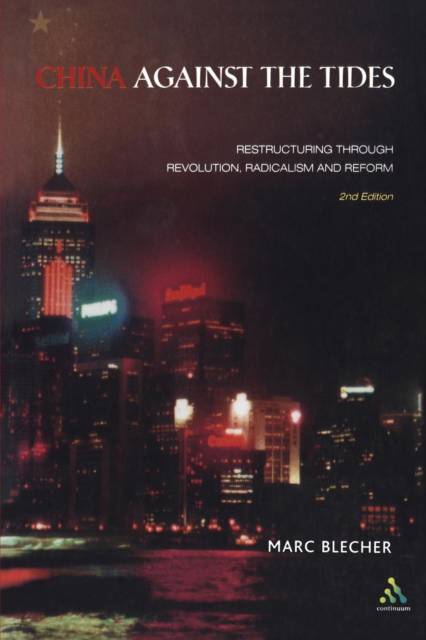
- Afhalen na 1 uur in een winkel met voorraad
- Gratis thuislevering in België vanaf € 30
- Ruim aanbod met 7 miljoen producten
- Afhalen na 1 uur in een winkel met voorraad
- Gratis thuislevering in België vanaf € 30
- Ruim aanbod met 7 miljoen producten
China Against the Tides
Restructuring Through Revolution, Radicalism and Reform
Marc BlecherOmschrijving
This new edition argues that, in both Mao and Deng periods, China has evolved in ways quite different from the Soviet model and from other developing countries. Like its predecessor, the book's approach is interdisciplinary and comparative. Professor Blecher analyzes China by introducing appropriate theories and concepts from historical and political sociology, economic development and political science. He explores China from two comparative perspectives: developing countries (including the newly industrializing countries of East Asia) and historical state socialist regimes. The book's chapters cover: imperial collapse, republican failure and communist triumph; a chronological overview since 1949; the state and politics; socialism and society; rural political economy; urban political economy; China and the Pacific Rim; the crisis of reform; and the future of Chinese economic development and politics. From PETRA: Blecher's new edition will revise and update the first, adding a new section on international economic factors to the political economy chapters - to include the WTO, gloablization, foreign investment etc. It will address new policy problems such as the spread of AIDS in China and will look at Hong Kong and Macau's return, and at the relationship with Taiwan. The Chinese diaspora is also covered.
Specificaties
Betrokkenen
- Auteur(s):
- Uitgeverij:
Inhoud
- Aantal bladzijden:
- 247
- Taal:
- Engels
Eigenschappen
- Productcode (EAN):
- 9780826464217
- Verschijningsdatum:
- 1/07/2003
- Uitvoering:
- Paperback
- Formaat:
- Trade paperback (VS)
- Afmetingen:
- 167 mm x 232 mm
- Gewicht:
- 408 g

Alleen bij Standaard Boekhandel
Beoordelingen
We publiceren alleen reviews die voldoen aan de voorwaarden voor reviews. Bekijk onze voorwaarden voor reviews.











